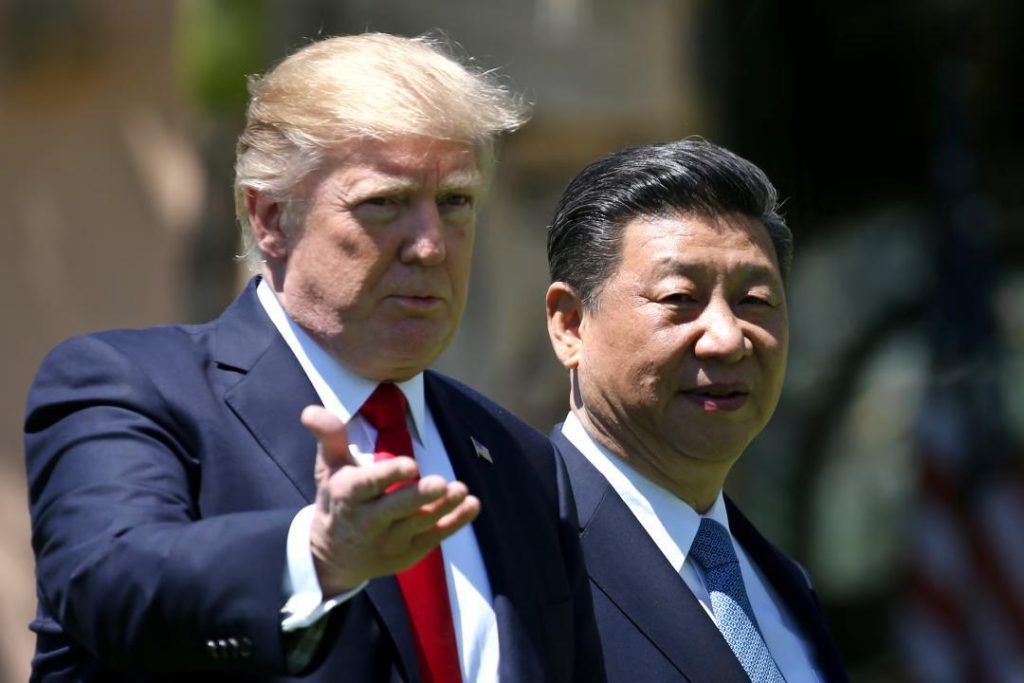
Title: Trump to Allow 6,00,000 Chinese Students in US Amid Tariff Talks
In a surprising move, US President Donald Trump has announced that the United States will permit entry to 6,00,000 Chinese students, reversing earlier visa restrictions targeting Chinese nationals tied to the Communist Party or sensitive research. This decision comes amid ongoing tariff talks between the US and China, and is seen as a significant gesture of goodwill towards improving US-China relations despite the ongoing trade tensions.
According to reports, Trump made the announcement during a meeting with American business leaders and Chinese officials at the White House. He emphasized the importance of fostering stronger ties between the two nations, stating that the move would help to “bring our countries closer together”.
The visa restrictions, which were put in place earlier this year, were aimed at limiting access to the US for Chinese nationals with ties to the Communist Party or those involved in sensitive research. However, the new policy will allow Chinese students to enter the US without restrictions, provided they meet standard visa requirements.
Trump’s decision to relax visa restrictions is seen as a significant shift in the US’s approach to China, and is likely to be welcomed by many in the academic and business communities. Chinese students have been a vital part of American higher education for decades, and the US is home to a large and diverse community of Chinese students and scholars.
The move is also seen as a key part of Trump’s efforts to improve US-China relations, which have been strained in recent years due to disagreements over trade, security, and other issues. Trump has long been a vocal critic of China’s trade practices, and has imposed a series of tariffs on Chinese goods in an effort to pressure Beijing into making concessions.
Despite the tensions, Trump has also emphasized his desire to work with China to address common challenges and improve relations. In a recent tweet, he expressed his interest in meeting with Chinese President Xi Jinping later this year to discuss trade and other issues.
The relaxation of visa restrictions is likely to be seen as a significant step towards improving US-China relations, and is likely to be welcomed by many in the business and academic communities. However, it remains to be seen whether the move will have a significant impact on the broader trade and security relationship between the two nations.
In recent years, the US has become increasingly concerned about the role of Chinese nationals in its research institutions, particularly in fields such as artificial intelligence, biotechnology, and cybersecurity. The US has accused China of engaging in intellectual property theft and espionage, and has taken steps to limit access to sensitive research and technology.
However, many experts have argued that the visa restrictions were overly broad and unfairly targeted Chinese nationals who were not involved in any wrongdoing. The decision to relax the restrictions is likely to be seen as a significant step towards restoring trust and cooperation between the two nations.
The move is also likely to be seen as a significant boost to the US-China relationship, which has been strained in recent years due to disagreements over trade, security, and other issues. The US is China’s largest trading partner, and the two nations have a complex and interdependent relationship that affects a wide range of industries and sectors.
In conclusion, Trump’s decision to allow 6,00,000 Chinese students in the US amid tariff talks is a significant step towards improving US-China relations, and is likely to be welcomed by many in the academic and business communities. While the move is likely to be seen as a significant gesture of goodwill, it remains to be seen whether it will have a significant impact on the broader trade and security relationship between the two nations.



